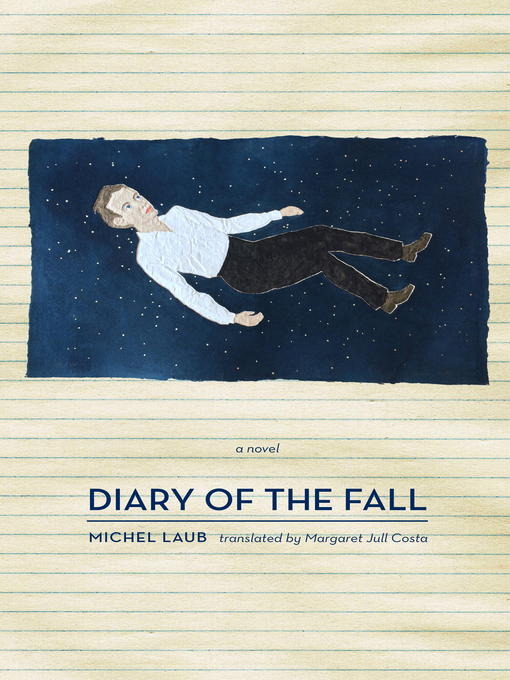
Diary of the Fall
A Novel
کتاب های مرتبط
- اطلاعات
- نقد و بررسی
- دیدگاه کاربران
نقد و بررسی

June 2, 2014
As much a novella as a novel, and as much a meditation as a novella, Laub’s first book published in English probes the emotional and psychological legacy a Jewish son inherits from his father and grandfather. In overlapping reminiscences, notes, and diary entries, a 40-something Brazilian journalist/writer recalls what he knows about his grandfather, an Auschwitz survivor unwaveringly uncommunicative about his concentration camp days. Before his death, the grandfather writes a memoir that fails to mention Auschwitz and characterizes the boardinghouse where he contracted typhoid while a newly arrived immigrant as clean and cozy. While sorting through his grandfather’s fabrications and discernible facts, the journalist also remembers his father, who built a comfortable and privileged life for his family and frequently expressed hatred for the Nazis and anti-Semitism. An account of his own teenage rebellion is further interlaced with his grandfather’s and father’s stories, beginning with the prank that injured a fellow student, a poor gentile bullied by his Jewish classmates. An evocation of his unhappy schooldays, when he learned both what it means to be persecuted and what it means to persecute, is followed by contemplation on the alcoholism and marital failure of his later year. A turning point comes when he receives news that his father has Alzheimer’s, which will soon rob the old man of all memory. Laub’s literary tricks include storytelling through negatives (what the grandfather doesn’t say reveals more than what he says); naming only two characters (the fictional boy João; the historical Primo Levi); and recurring motifs (Auschwitz, falls, hospitals, fathers and sons); deployed in concert, they deliver an introspective riff on the “non-viability of human experience.”

June 15, 2014
A childhood prank gone wrong prompts one man's reckoning with his family's Holocaust history in this recursive, astringent novel, the author's first published in English.The narrator of Laub's fifth novel is a middle-aged Brazilian man who's on his third marriage, courting alcoholism and caring for his father, who's just been diagnosed with Alzheimer's disease. But he's preoccupied as much with the past as the present, particularly his complicity in an incident that occurred when he was 13: He and his friends let a classmate fall to the ground during the last of the traditional "birthday bumps," leaving him badly injured. That moment is the keyhole through which the narrator considers his grandfather, a Holocaust survivor, and the emotional weight of the death camps. (The narrator had just been bar mitzvahed when the incident occurred, so his Jewish heritage was top-of-mind.) Grandfather kept a series of notebooks after escaping Auschwitz and moving to Brazil, but the atrocity is absent from its pages, though sublimated into obsessive scribbling about hygiene. This slim study of the difficulty of facing past horrors is mirrored in the cracked quality of the narrative: Each section is splintered into paragraph-long minichapters that offer glimpses of the narrator's fights with his father, his regrets over the bullied and wounded schoolmate, his grandfather's decline and the limitations of Holocaust memoirs. (Primo Levi's If This Is a Man is a particular focus.) The overall mood of the novel is understandably tragic and soaked in regret: The narrator, like his father and grandfather before him, is trying and failing to come to grips with atrocity in his writing. But the closing pages here carry a sense that recovery and forgiveness may be possible, if hard-won.A spare and meditative story that captures the long aftereffects of tragedy.
COPYRIGHT(2014) Kirkus Reviews, ALL RIGHTS RESERVED.

























دیدگاه کاربران